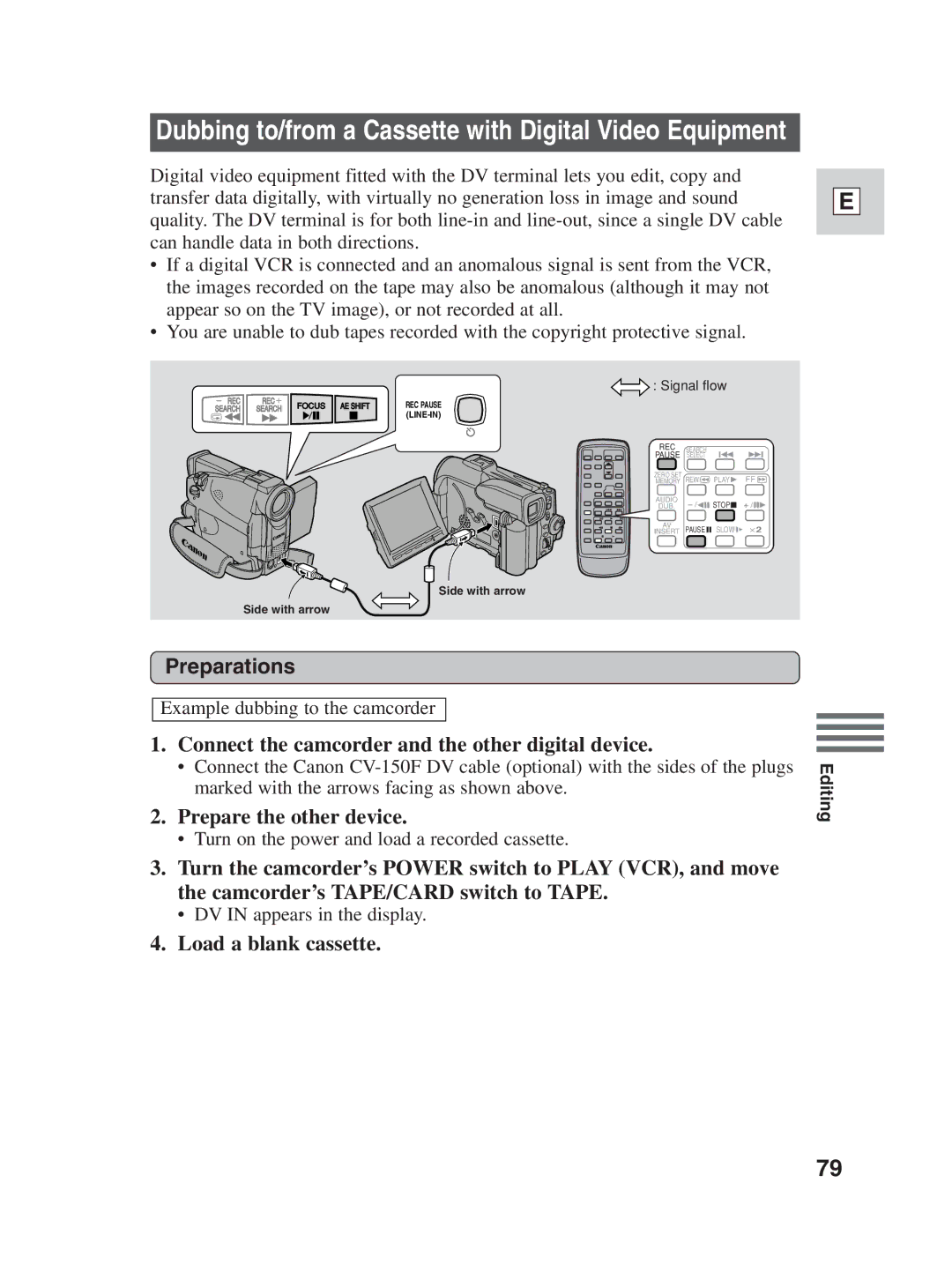
Dubbing to/from a Cassette with Digital Video Equipment
Digital video equipment fitted with the DV terminal lets you edit, copy and transfer data digitally, with virtually no generation loss in image and sound quality. The DV terminal is for both
•If a digital VCR is connected and an anomalous signal is sent from the VCR, the images recorded on the tape may also be anomalous (although it may not appear so on the TV image), or not recorded at all.
•You are unable to dub tapes recorded with the copyright protective signal.
 : Signal flow
: Signal flow
REC | REC | FOCUS | AE SHIFT | REC PAUSE | |||||
SEARCH | SEARCH | ||||||||
|
|
|
|
|
| ||||
|
|
|
|
|
|
|
| ||
REC | SEARCH |
|
|
PAUSE | SELECT |
|
|
ZERO SET | REW | PLAY | FF |
MEMORY | |||
AUDIO | STOP | + / | |
DUB. | |||
AV | PAUSE | SLOW | ⋅ 2 |
INSERT |
Side with arrow
Side with arrow
E
Preparations
Example dubbing to the camcorder
1.Connect the camcorder and the other digital device.
•Connect the Canon
2.Prepare the other device.
•Turn on the power and load a recorded cassette.
3.Turn the camcorder’s POWER switch to PLAY (VCR), and move the camcorder’s TAPE/CARD switch to TAPE.
•DV IN appears in the display.
4.Load a blank cassette.
Editing
79
